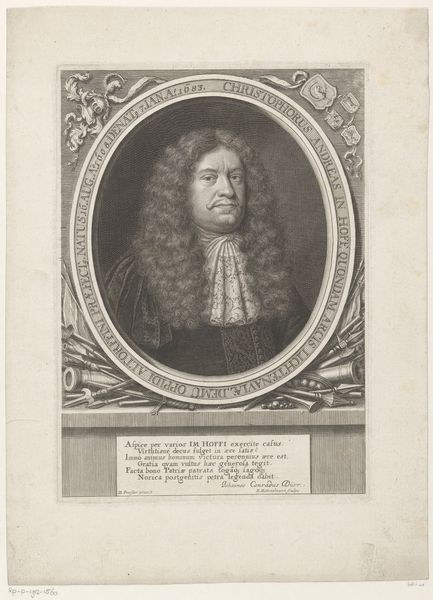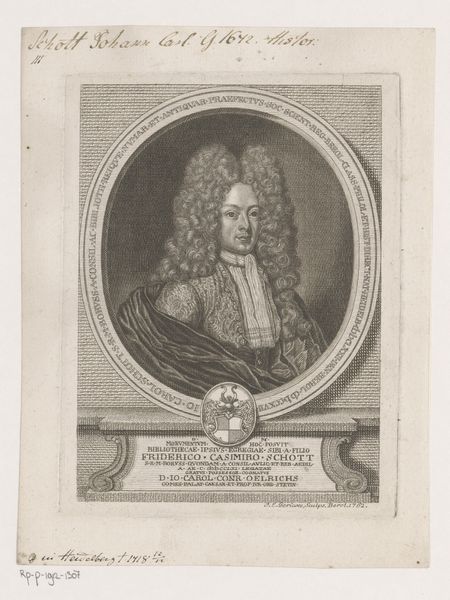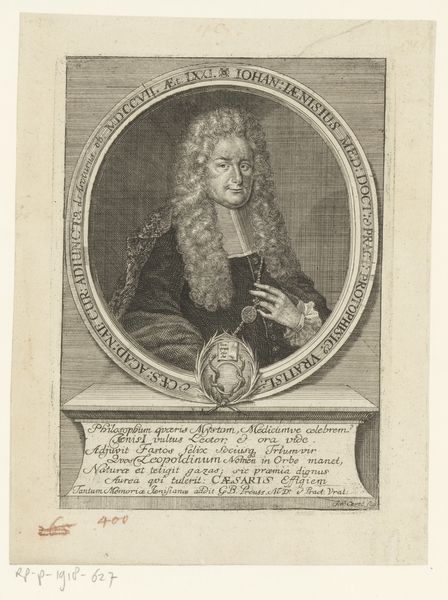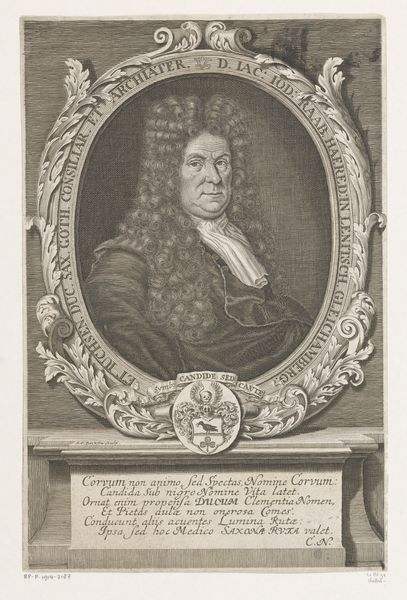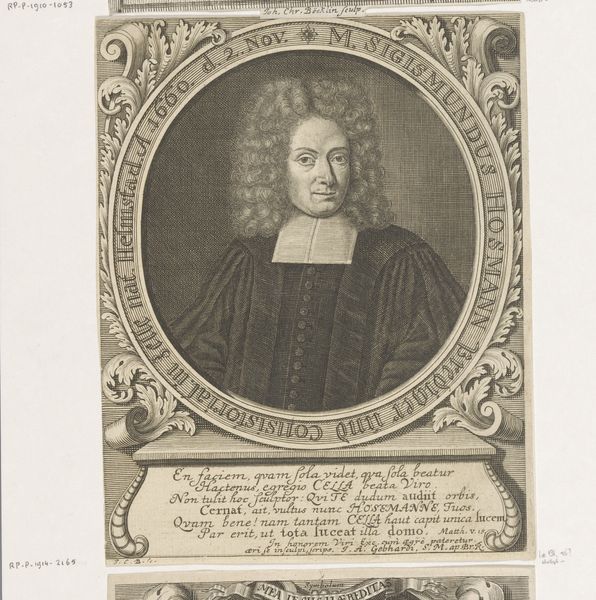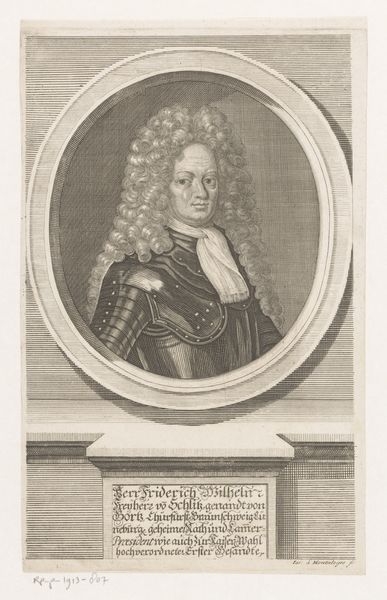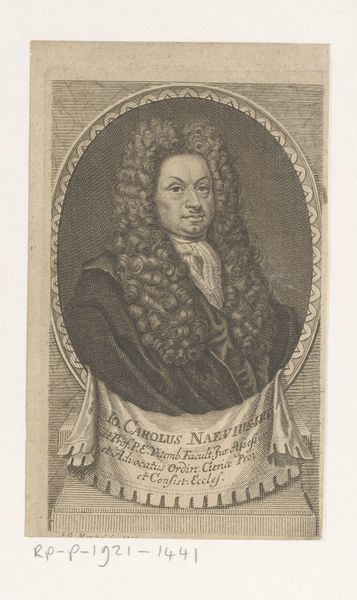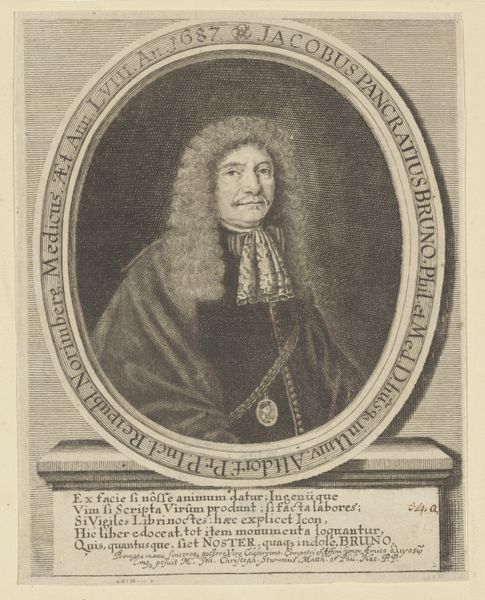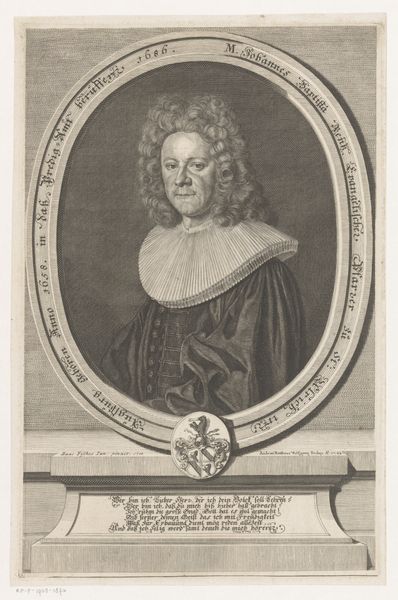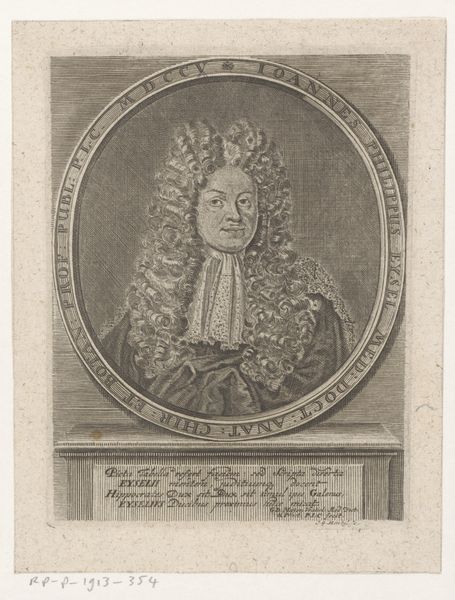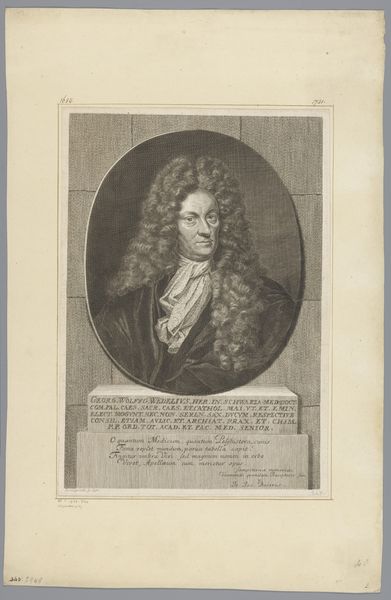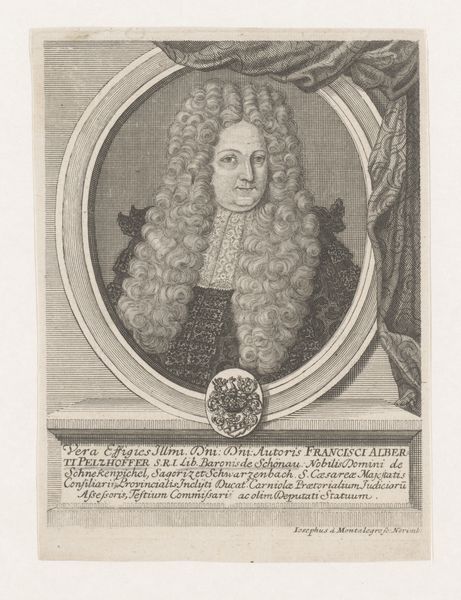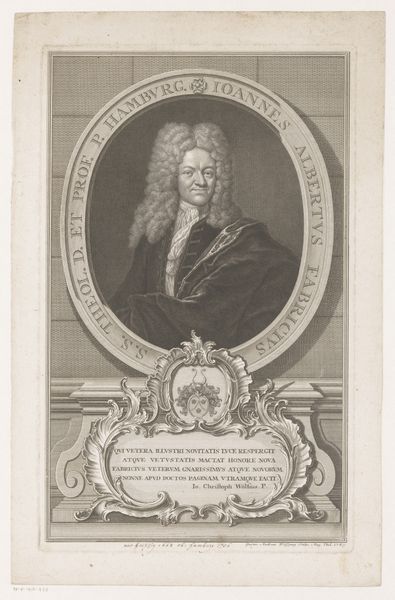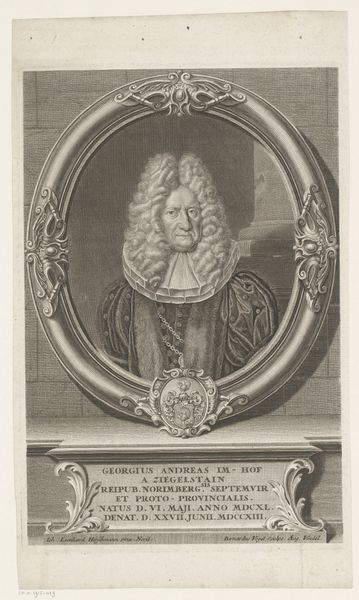
print, engraving
#
portrait
#
baroque
# print
#
form
#
engraving
Dimensions: height 195 mm, width 156 mm
Copyright: Rijks Museum: Open Domain
This portrait of Friedrich Ulrich Calixt was made around 1698 by Johann Christoph Boecklin, using engraving. A print like this would have been relatively inexpensive, part of the rapidly expanding visual culture made possible by the printing press. Notice how the matrix of lines is made to describe Calixt’s face, his elaborate wig, and the inscription that surrounds the image. The quality of the line tells us something about the engraver’s skill, and the time involved. A print like this takes patience, and a deep understanding of the burin, the tool that cuts the image into the metal plate. Engraving was a process that combined artistry with craft skill, and as such, it occupies an interesting place in the history of art. The image could be reproduced many times over, democratizing the image, and providing a kind of immortality to its subject. A powerful statement, especially at a time of great social change, when class structures were becoming both more rigid, and more permeable.
Comments
No comments
Be the first to comment and join the conversation on the ultimate creative platform.
